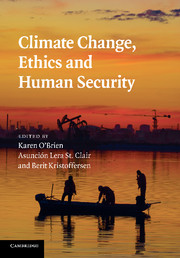2 - The idea of human security
Published online by Cambridge University Press: 01 June 2011
Summary
Prelude: The surprising spread of ‘human security’ discourse
The language of ‘human security’ that became prominent in the 1990s has encountered criticism from many sides. Nonetheless, over the past twenty years it has continued to gain momentum. One encounters it frequently now, not only in debates about physical security, but in discussions of environment, migration, socioeconomic rights, culture, gender and more. Werthes and Debiel (2006: 8) propose that “human security provides a powerful ‘political leitmotif’ for particular states and multilateral actors by fulfilling selected functions in the process of agenda-setting, decision-making and implementation.” I suggest that in order to understand human security discourse and its spread, this specification of actors and functions should be broadened. The relevant actors include more than states and multilateral agencies, and what was originally primarily a language in United Nations circles is now far more encompassing. Like the sister idea of human rights, human security is becoming an idiom that plays important roles in motivating and directing attention, and in problem recognition, diagnosis, evaluation and response.
The concept of ‘security’ in a human context
The concept of human security redirects attention in discussions of security, beyond the nation-state level, beyond physical violence as the only relevant threat/vector, and beyond physical harm as the only relevant damage. Scores of specific proposed definitions exist. In an earlier study (Gasper, 2005), I organised a range of definitions in an analytical table, which Table 2.1 now extends (the entries in italics indicate diverse possible definitions of human security).
- Type
- Chapter
- Information
- Climate Change, Ethics and Human Security , pp. 23 - 46Publisher: Cambridge University PressPrint publication year: 2010
References
- 26
- Cited by

